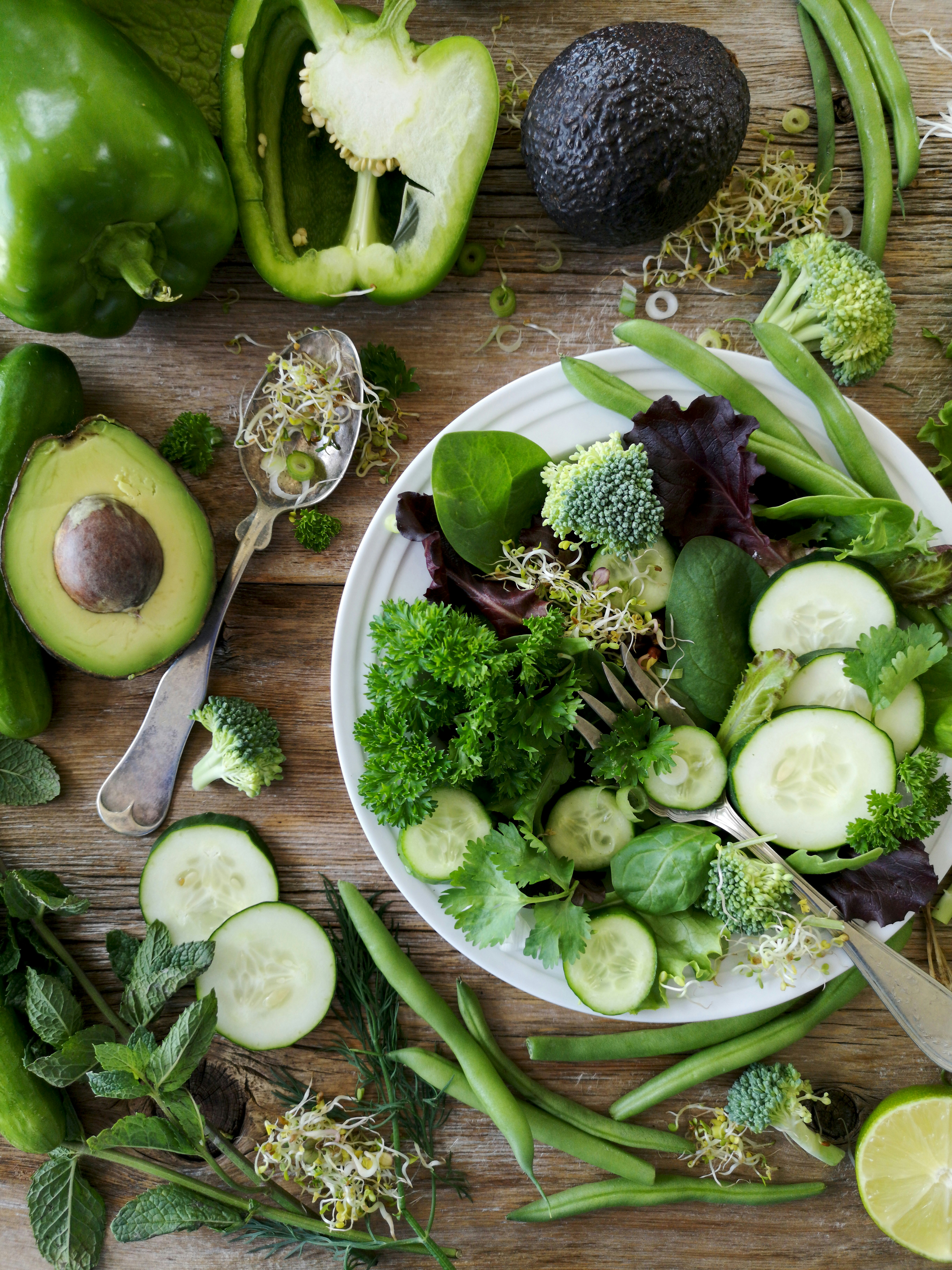So, you’ve decided to embark on a low carb diet to improve your health or shed a few pounds. But here’s the burning question on your mind: can you still enjoy the natural sweetness of fruits? Well, fear not, my friend, because today we’re here to tackle this very topic of whether or not you can indulge in your favorite fruits while following a low carb lifestyle. Get ready to uncover the juicy truth about fruit consumption on a low carb diet and discover some surprising options that won’t derail your health goals.
Understanding Low Carb Diets
A low carb diet is a dietary approach that focuses on reducing the consumption of carbohydrates, particularly those found in grains, starchy vegetables, and processed foods. By limiting carbohydrate intake, the body is forced to use stored fat as its primary source of energy, which can lead to weight loss. This approach is often favored by individuals looking to improve their overall health, manage blood sugar levels, or achieve specific weight loss goals.
Benefits of Low Carb Diet
There are several benefits associated with following a low carb diet. By reducing carbohydrate intake, many people experience weight loss, improved blood sugar control, and increased satiety. Low carb diets have been shown to help lower triglyceride levels, increase HDL (good) cholesterol levels, and reduce blood pressure. This can contribute to a reduced risk of heart disease, type 2 diabetes, and metabolic syndrome. Additionally, low carb diets may help improve cognitive function, increase energy levels, and support overall wellbeing.
Typical Foods Included in a Low Carb Diet
A low carb diet primarily consists of foods that are low in carbohydrates but high in protein and healthy fats. Common food choices include lean meats, fish, eggs, nuts, seeds, full-fat dairy products, and non-starchy vegetables such as leafy greens, broccoli, and cauliflower. These foods provide essential nutrients while minimizing the intake of carbohydrates. While fruits are generally higher in carbohydrates compared to other food groups, there are specific low carb fruit options that can be incorporated into a low carb diet.
Role of Fruits in Diet
Fruits are an important part of a balanced diet due to their rich nutritional value. They are packed with essential vitamins, minerals, antioxidants, and dietary fiber. Incorporating fruits into your daily diet can provide numerous health benefits, including improved digestion, enhanced immune function, and reduced risk of chronic diseases such as heart disease, certain cancers, and obesity.

Nutritional Value of Fruits
Fruits are a great source of essential vitamins, such as vitamin C, vitamin A, and folate. They also contain minerals like potassium, which is important for maintaining healthy blood pressure levels, and magnesium, which plays a role in various bodily functions. Furthermore, fruits are rich in antioxidants, which help protect the body against oxidative stress and inflammation. Additionally, the fiber found in fruits promotes digestive health and helps regulate blood sugar levels.
Importance of Fruits in a Balanced Diet
Including fruits in a balanced diet is crucial for obtaining a wide range of nutrients and promoting overall health. They provide essential vitamins, minerals, and antioxidants that support various bodily functions. Fruits are low in fat and calories, making them a healthy and nutritious choice for snacking or as part of a meal. Their high fiber content helps promote feelings of fullness, which can aid in weight management. By incorporating a variety of fruits into your diet, you can ensure you are getting the necessary nutrients your body needs to thrive.

How Fruits Contribute to Overall Health
Fruits offer numerous health benefits that contribute to overall wellbeing. Their rich antioxidant content helps protect against chronic diseases and can help delay the aging process. The fiber in fruits supports digestive health, prevents constipation, and promotes regular bowel movements. Additionally, fruits are hydrating and contain a high water content, which is essential for maintaining optimal hydration levels. Consuming a variety of fruits can boost your immune system, improve skin health, and support healthy weight management.
Carbohydrate Content in Fruits
Understanding Carbohydrates in Fruits
Carbohydrates are one of the macronutrients found in food, and they are the body’s primary source of energy. Fruits naturally contain carbohydrates, with the majority of them coming from simple sugars such as fructose and glucose. However, the carbohydrate content in fruits can vary significantly, with some fruits being higher in carbs than others.
How Carbohydrates Vary Among Different Fruits
Different fruits have varying carbohydrate content due to their natural sugar composition. Fruits such as bananas, mangos, and dried fruits tend to be higher in carbohydrates compared to berries, melons, and citrus fruits. It’s important to note that even though some fruits may be higher in carbohydrates, they also provide essential nutrients, fiber, and other health benefits. Therefore, it’s about finding a balance and incorporating lower carb fruits into your diet.
Impact of Carbohydrates from Fruits on the Body
Carbohydrates from fruits, when consumed in moderation as part of a balanced diet, can provide the body with a quick and easily digestible source of energy. However, excessive consumption of high carb fruits can lead to elevated blood sugar levels, particularly for individuals with diabetes or insulin resistance. It’s important to consider your personal health goals and dietary needs when including fruits in your low carb diet.
Low Carb Fruits Suitable for Low Carb Diets
Strawberries and Other Berries
Strawberries, raspberries, blueberries, and blackberries are excellent low carb fruit options. They are packed with antioxidants, vitamins, and fiber, while still being relatively low in carbohydrates. These berries can be enjoyed on their own, added to salads, yogurt, or incorporated into smoothies.
Melons
Melons, such as watermelon, cantaloupe, and honeydew, are refreshing and low in carbohydrates. They are hydrating fruits that provide essential vitamins and minerals. Melons can be enjoyed as a standalone snack, added to fruit salads, or blended into refreshing summer beverages.
Citrus Fruits
Citrus fruits, including oranges, lemons, limes, and grapefruits, are low in carbohydrates and rich in vitamin C. They add a burst of tangy flavor and brightness to dishes, and their juice can be used in dressings or marinades. Citrus fruits can also be enjoyed on their own as a healthy snack.
Peaches and Nectarines
Peaches and nectarines are delicious and juicy fruits that are relatively low in carbohydrates. They provide essential vitamins, minerals, and dietary fiber. Enjoy them on their own, slice them into salads, or grill them for a caramelized treat.
Apricots and Other Stone Fruits
Apricots, plums, cherries, and other stone fruits can be enjoyed as part of a low carb diet. These fruits are nutrient-dense, containing vitamins, minerals, and fiber. Stone fruits can be eaten fresh, used in desserts, or added to savory dishes for a hint of natural sweetness.
High Carb Fruits to Avoid
Bananas
Bananas are higher in carbohydrates compared to other fruits, making them less suitable for a low carb diet. However, they do provide essential nutrients such as potassium and vitamin C. If you choose to include bananas in your diet, be mindful of portion sizes and consider pairing them with protein or healthy fats to balance out the carb content.
Mangoes
Mangoes are delicious tropical fruits but are relatively higher in carbohydrates compared to other low carb fruit options. They are rich in vitamins A and C, as well as dietary fiber. Mangoes can still be enjoyed occasionally as a treat, but it’s best to limit their consumption on a low carb diet.
Dates and Other Dried Fruits
Dried fruits, including dates, raisins, and dried apricots, are higher in carbohydrates due to their concentrated sugar content. While they provide some nutrients and fiber, they should be consumed sparingly on a low carb diet. Keep in mind that dried fruits are more calorie-dense than fresh fruits, so portion control is essential.
Pomegranates
Pomegranates are known for their juicy arils and antioxidant properties. However, they are higher in carbohydrates compared to other low carb fruits. Pomegranates can still be enjoyed in moderation, and their arils can be sprinkled over salads or added to yogurt for a burst of flavor and texture.
Pineapples
Pineapples are tropical fruits that are higher in carbohydrates due to their natural sugar content. They are rich in vitamins C and manganese and can be enjoyed occasionally in small amounts on a low carb diet. Consider pairing pineapple with protein sources like chicken or shrimp for a balanced meal.
Incorporating Fruits into a Low Carb Diet
Proper Portion Sizes of Fruits
While fruits offer many health benefits, it’s important to be mindful of portion sizes when following a low carb diet. Aim for around ½ to 1 cup of low carb fruits per serving. This allows you to enjoy the nutritional benefits of fruits without consuming excessive carbohydrates.
Timing of Fruit Consumption
Timing is key when incorporating fruits into a low carb diet. It’s generally recommended to consume fruits earlier in the day or around workouts to maximize their benefits and minimize the impact on blood sugar levels. Spacing out fruit consumption throughout the day can also help maintain stable energy levels.
Pairing Fruits with Other Food Groups
To further enhance the nutritional value and balance the macronutrient content of your meals, consider pairing low carb fruits with other food groups. For example, enjoy berries with Greek yogurt for added protein and healthy fats, or have citrus fruits alongside a handful of almonds for a satisfying snack. By combining fruits with protein or healthy fats, you can create a balanced meal or snack that supports your low carb diet goals.
Recipes Incorporating Low Carb Fruits
Breakfast Recipe Ideas
- Berry Chia Seed Pudding: Mix unsweetened almond milk, chia seeds, and berries of your choice. Let it sit overnight for a delicious and nutritious breakfast.
- Melon and Prosciutto Salad: Combine diced melons, prosciutto slices, fresh mint, and a drizzle of balsamic glaze for a refreshing and savory breakfast option.
- Citrus Avocado Toast: Top whole grain toast with mashed avocado and sliced citrus fruits for a vibrant and satisfying morning meal.
Dessert Recipe Ideas
- Grilled Peaches with Greek Yogurt: Brush halved peaches with a bit of melted butter, cinnamon, and a touch of honey. Grill until caramelized and serve with a dollop of Greek yogurt.
- Berry Parfait: Layer Greek yogurt, mixed berries, and a sprinkle of granola for a light and fruity dessert that satisfies your sweet tooth.
- Apricot Almond Crumble: Combine sliced apricots with a sprinkle of almond flour, cinnamon, and a drizzle of honey. Bake until bubbly and enjoy with a scoop of low carb vanilla ice cream.
Snack Recipe Ideas
- Strawberry Spinach Salad: Toss fresh strawberries, spinach, feta cheese, and almonds with a light vinaigrette for a nutritious and satisfying snack.
- Watermelon and Feta Skewers: Alternate cubed watermelon and feta cheese on skewers for a refreshing and protein-packed snack option.
- Frozen Berry Yogurt Bites: Dip fresh berries in Greek yogurt and freeze until firm for a delicious and cooling grab-and-go snack.
Main Course Recipe Ideas
- Chicken and Citrus Salad: Combine grilled chicken breast, mixed greens, sliced citrus fruits, avocado, and a tangy citrus dressing for a light and flavorful main course.
- Salmon with Mango Salsa: Pan-sear salmon and top with a fresh salsa made from diced mango, red onion, jalapeno, lime juice, and cilantro.
- Pork Tenderloin with Apricot Glaze: Roast pork tenderloin and brush with a glaze made from pureed apricots, Dijon mustard, honey, and soy sauce.
Common Mistakes to Avoid When Eating Fruits on a Low Carb Diet
Eating Too Much Fruit
While fruits are nutritious, consuming too much fruit, particularly high carb varieties, can contribute to a higher carbohydrate intake than intended. Be mindful of portion sizes and aim for a balanced approach when incorporating fruits into your low carb diet.
Eating Only Fruit
Relying solely on fruit for your nutritional needs may leave you lacking in other essential nutrients such as protein and healthy fats. Make sure to include a variety of food groups to meet your body’s requirements and maintain a well-rounded diet.
Ignoring the Importance of Variety
While certain low carb fruits may be your go-to choices, it’s essential to incorporate a variety of fruits into your diet. Each fruit offers a unique set of nutrients and antioxidants, so diversifying your fruit intake ensures you are getting a wide range of health benefits.
Misunderstanding the Difference Between Natural and Added Sugars
It’s crucial to distinguish between natural sugars found in fruits and added sugars found in processed foods. While fruits contain natural sugars, they also provide essential nutrients and fiber. Added sugars, on the other hand, offer little nutritional value and can have adverse effects on health. Be mindful of sources of added sugars in your diet and prioritize whole fruits as your primary source of sweetness.
Monitoring Your Carb Intake
How to Count Carbs in Fruits and Other Foods
When following a low carb diet, it’s helpful to become familiar with the carbohydrate content of different foods, including fruits. Nutritional labels, food databases, or smartphone apps can assist in tracking your carb intake. Pay attention to both total carbohydrates and net carbohydrates (total carbs minus fiber) to account for the impact of dietary fiber on blood sugar levels.
Useful Apps and Tools for Tracking Carb Intake
There are several apps and online tools available that can help you track your carbohydrate intake. Some popular options include MyFitnessPal, Carb Manager, and Cronometer. These apps allow you to search for specific foods, input portion sizes, and track your daily macronutrient intake, including carbohydrates from fruits.
Understanding Your Personal Carb Limit
Everyone’s carbohydrate tolerance and needs are different. Some individuals may be able to consume slightly higher amounts of carbohydrates while staying in a state of ketosis, while others may need to strictly limit their carbohydrate intake. Experimentation and self-monitoring are key to finding your personal carb limit and determining what works best for your body.
Expert Opinions on Eating Fruits on a Low Carb Diet
Perspectives from Dietitians and Nutritionists
Dietitians and nutritionists generally agree that incorporating low carb fruits into a low carb diet can be beneficial when consumed in moderation. They emphasize the importance of portion control and variety to ensure adequate nutrient intake while maintaining a low carbohydrate intake. Consulting with a healthcare professional or registered dietitian can provide personalized guidance and ensure the successful implementation of a low carb diet incorporating fruits.
Scientific Research Supporting Fruit Consumption on a Low Carb Diet
Numerous scientific studies have shown the positive effects of fruit consumption on health, even when following a low carb diet. These studies highlight the beneficial nutrients, fiber, and antioxidants found in fruits and their potential to support weight management and overall well-being. While more research is still needed, the existing evidence supports the inclusion of low carb fruits as part of a balanced and healthy low carb diet.
Patient Success Stories
Many individuals have successfully incorporated fruits into their low carb diets and achieved their health or weight loss goals. Personal testimonials often highlight the satisfaction, improved energy levels, and overall wellbeing experienced from consuming low carb fruits. These success stories can serve as inspiration and motivation for those considering or currently following a low carb diet that includes fruits.
In conclusion, while following a low carb diet, it is possible to enjoy the benefits of fruits by incorporating low carb options into your meal plan. By understanding the carbohydrate content of different fruits, making informed choices, and adopting a balanced approach, you can reap the nutritional rewards and satisfy your cravings while staying within your low carb guidelines. Remember to consult with a registered dietitian or healthcare professional to ensure that your low carb diet aligns with your individual needs and goals.


